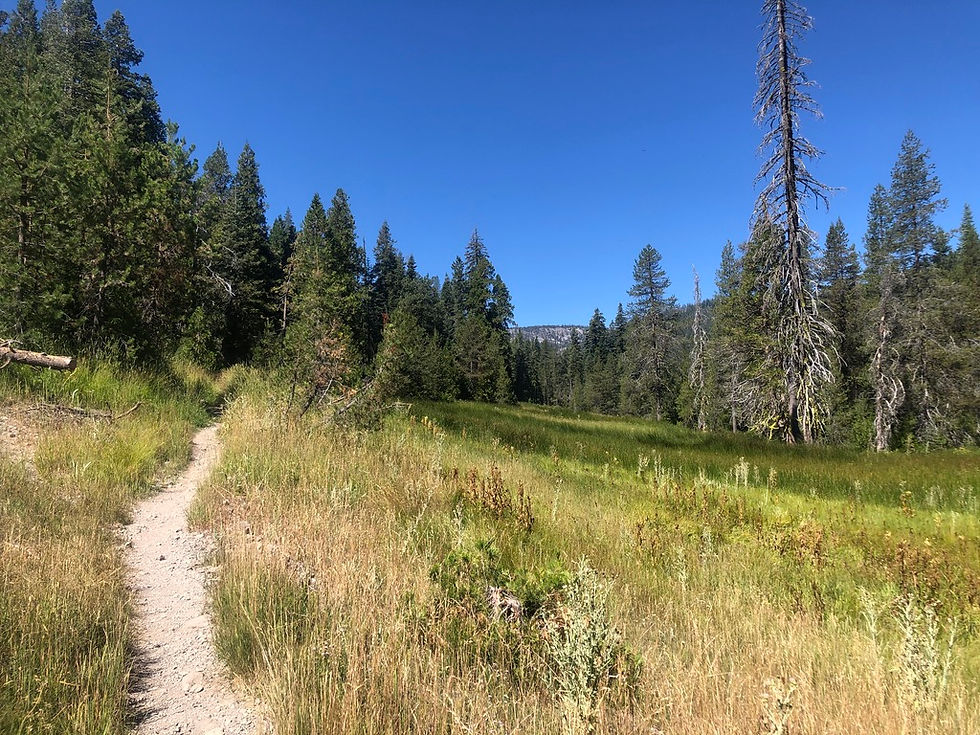3 Books by Women about the Environment that Everyone Should Read
- Nov 23, 2020
- 4 min read
“This is our work, to discover what we can give. Isn’t this the purpose of education, to learn the nature of your own gifts and how to use them for good in the world?” -Robin Wall Kimmerer, in Braiding Sweetgrass

The world is a big, beautiful, and yes, scary place these days. It seems every time you check the news or see a headline dash across your phone there’s a new wildfire, oil spill, or species on the brink of extinction. But you know what’s good? Books. Books by women. Books by women about nature. Books by women about nature that give you hope, make you smile, cause you to think a little deeper, and inspire you to to take a closer look at the grass beneath your feet. So grab a blanket, make a cup of hot cocoa, and settle in with one of these works this winter!
Stages of Rot by Linnea Sterte
I get it. We’re eight months into a pandemic, and if you’re like me, you’re in grad school and tired of reading hundreds of pages a week, working on a thesis, writing essays, and generally using your brain. Enter: a book that’s mostly pictures!
Stages of Rot by Linnea Sterte features gorgeous, full-color illustrations of an other-worldly ecosystem. Pastel corals, light greys, pale greens, and deep indigos swirl across the page, bringing to life an alien planet and its people. The story is a sci-fi take on a whale fall and the millennia-long process of its decay. The narrative, however, is secondary to the imagery. You’ll find faces both familiar and unfamiliar, from mushrooms to moths, and watch civilizations rise and fall among the whale’s remains.
Search for a greater meaning within the pages, or just spend an afternoon admiring the artistry; either way, this graphic novel is sure to delight.
Braiding Sweetgrass: Indigenous Wisdom, Scientific Knowledge, and the Teachings of Plants by Robin Wall Kimmerer
Looking for something a little meatier? Or rather, plant-ier? Okay okay, that doesn’t quite work as a replacement metaphor, but this next book is a celebration of flora. More than that, Braiding Sweetgrass by Robin Wall Kimmerer weaves a tale (pun intended) that is part memoir, part guide to the natural world.
A member of the Citizen Potawatomi Nation and a Professor of Environmental and Forest Biology, Kimmerer straddles the divide between Traditional Ecological Knowledge (TEK) and Western science. Through stories of raising her daughters, sharing Potawatomi traditions, and lessons from her botany classes, she highlights the interconnectedness of all living things. Her wisdom and scientific thinking reads like poetry. To truly understand the natural world, and protect it for future generations, she invites us to listen to the teachings of the wild. Combining Indigenous ways of knowing with scientific knowledge, Braiding Sweetgrass shows us how we can be more compassionate stewards of the plants and animals around us.
After all, how can we ask a planet to care for us if we don’t care for it in return?
All We Can Save: Truth, Courage, and Solutions for the Climate Crisis edited by Dr. Ayana Elizabeth Johnson and Dr. Katharine K. Wilkinson
Now that you’ve relaxed with some gorgeous illustrations by Linnea Sterte, have been filled with a renewed love for the beauty and interdependence of all living things thanks to Robin Wall Kimmerer, it’s time to get down to business. How do we protect this big blue marble we call home?
Dr. Ayana Elizabeth Johnson and Dr. Katharine K. Wilkinson have the answers. Or at least, some of the answers. All We Can Save is a compilation of essays, poetry, and art from over 50 climate leaders in the U.S., a diverse team of women sharing their expertise and insights on how to save a planet. It’s rare that you read an article, let alone an entire book, about climate change that leaves you feeling uplifted and inspired, but All We Can Save does just that. It showcases how complex the climate movement is, and how intersectional and inclusive climate change solutions must be. We cannot fix the world by wishing, by hoping, or by waiting; we know that much to be true. Johnson and Wilkinson offer an alternative, a collection of actions and of ideas, a path we can choose to walk together with a more diverse set of voices guiding the way. And the book’s very title, All We Can Save, is in itself a rebuke to the traditional narrative on the climate crisis. Instead of focusing on what we are losing, what if we refocus our energies on all that is left to protect?

As the nights get longer and our eyes get tired from staring at screens all day, I suggest grabbing a blanket (or your coziest fleece animal onesie), brewing some herbal tea (or something a little stronger, depending on how your day went), and cuddling up with one (or all) of these books. They’re sure to add a little light to the dark winter days.








Comments